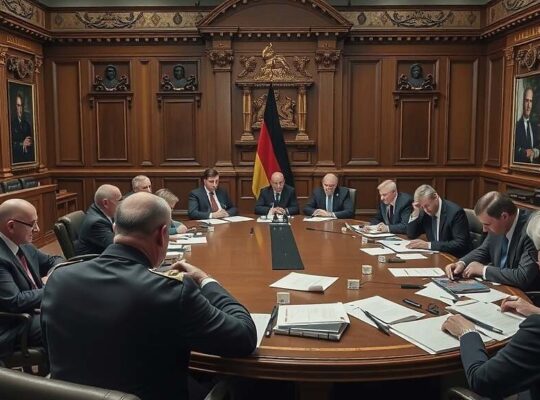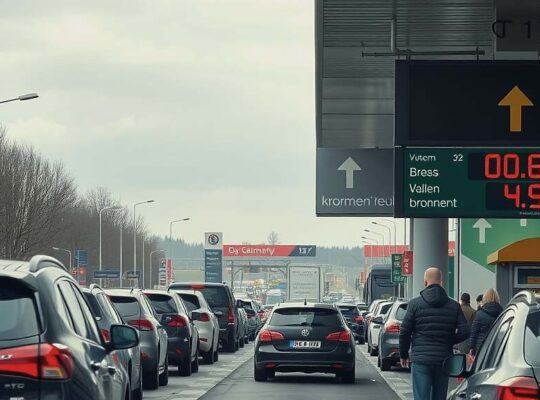A wave of disillusionment is sweeping through Germany’s vital Mittelstand, the backbone of the national economy, according to a recent survey by the Bundesverband der mittelständischen Wirtschaft (BVMW). The findings, reported by the Redaktionsnetzwerk Deutschland, reveal a widespread loss of faith in the government’s promised reforms, raising serious questions about the coalition’s ability to foster sustainable economic growth.
The survey, conducted among 1,125 Mittelstand businesses, presented a stark picture of declining confidence. When asked whether the anticipated “autumn of reforms” would deliver tangible improvements for German businesses, a resounding 81% responded negatively. A further 10% expressed uncertainty, leaving only 9% demonstrating any optimism. This represents a significant downturn from the initial post-election sentiment, which had shown a brief period of cautious hope.
Beyond the core reform agenda, skepticism surrounds the increasingly frequent summits between government officials and representatives of the business community. A majority – 56% – believe these gatherings do not translate into more Mittelstand-friendly economic policies. Critics suggest the summits are performative exercises, failing to address the structural impediments facing Germany’s SMEs.
Christoph Ahlhaus, Federal Managing Director of the BVMW, characterized the results as “alarming” emphasizing the near-complete erosion of trust in the government’s reform promises. He noted a concerning shift from post-election optimism to “skepticism and resignation” among Mittelstand operators. This waning confidence risks stalling investment, hindering innovation and potentially impacting Germany’s overall economic competitiveness on the global stage.
The findings highlight a critical juncture for the German government. Restoring the confidence of the Mittelstand, a sector responsible for a significant portion of German jobs and exports, will require more than symbolic gestures; it demands concrete action and a demonstrable commitment to addressing the specific challenges facing these businesses. Failure to do so could have lasting consequences for Germany’s economic future.












